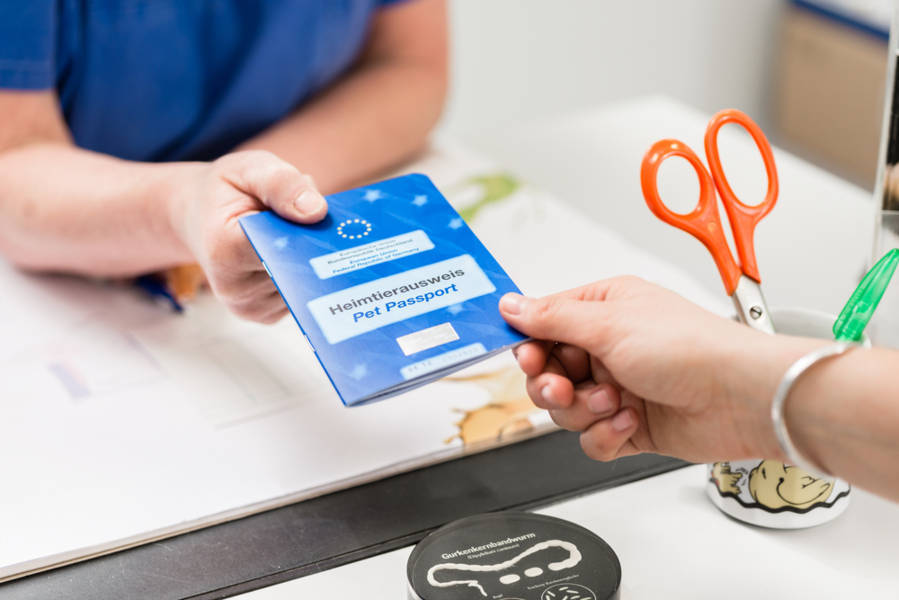A pet is very much a part of the family for many people and In certain countries dog ownership in particular, has skyrocketed in recent years. For example, during the Covid-19 lockdowns, dog ownership in the UK grew exponentially. But what about pets in Iceland? Which animals are the most popular here and can you travel to Iceland with your pet in tow?
In this article, we will delve into the rules and regulations around traveling to Iceland with your pet. We will focus on the most popular pet of all, man’s best friend, the trusty hound. We’ll also take a brief look at the rules around traveling with other popular pets, such as cats.
Can you bring your dog with you to Iceland?
So what about dogs in Iceland? With more and more people working from home, owning a dog gets them out for regular walks in the fresh air and for many dog owners that means taking their faithful friends with them everywhere.
A holiday in Iceland is very much about being outdoors, walking and hiking. And we all know that most dogs love a good roam in the countryside. Pet travel within home country borders is common these days with many hotels offering dog-friendly facilities as well as lots of bars and pubs welcoming pooches.
So, it comes as no surprise if you want to take your dog with you on a holiday in Iceland. Unfortunately, though, this is not possible. There are strict rules around importing dogs and pets in general into Iceland. There is no short-term solution and obtaining a pet passport for your pooch takes months.
Relocating to Iceland with dogs or cats
If you are relocating to live in Iceland, then this is of course a very different matter. Depending on your circumstances, you may decide that you definitely want to bring your beloved pets with you.
Keep in mind that air travel for pets can be very stressful, so before deciding to proceed, you should consider the nature of your animal. Are they prone to stress, and would it be kinder to find them a new home in your home country? There is also the cost to consider and your living situation once you arrive in Iceland. If you still want to go ahead after giving it plenty of thought, then you need to start the process with time to spare.
How to obtain a pet passport for Iceland
We will now look at the process that you need to go through to obtain a pet passport for Iceland in detail:
- Firstly, your pet must be microchipped with a compliant microchip. This should be non-encrypted and fifteen digits long.
- You will then need to apply to the Iceland Food and Veterinary Authority for a permit.
- Your pet will need to be fully vaccinated against several common diseases and you must have the paperwork to prove it.
- In the thirty days prior to travel, your pet will need to be tested for various common diseases.
- Just before travel, you will need to arrange for a licensed vet to complete an Iceland Veterinary Certificate of Health and Origin.

Iceland Pet Permit and requirements
The Iceland pet customs permit will allow your pet to enter Iceland and you should start your application thirty days before you intend to depart your home country at the very least. It makes sense to do it as soon as possible, as it will be valid for a full year once it has been issued.
Pet vaccinations for entry into Iceland
To obtain the permit your pet must be fully vaccinated and you must provide proof of vaccination. For dogs, the big one is, of course, rabies. The rabies vaccination must have been administered between one month and six months before entry. But that’s not it. They must also have been vaccinated against leptospirosis between one month and six months prior to entry.
And there’s more. Your dog will need proof of vaccination against canine parvovirus and canine distemper, as well as infectious hepatitis. All of these must be within the last year. There are also some additional requirements if you are importing your dog from certain countries, but these are the main ones to take into account.
Pre-travel tests for your pet
During this last month, before traveling to Iceland, your pet will need to be tested for salmonella, brucella canis, and angiostrongylus vasorum. It must also be tested for rabies to ensure that it has successfully developed antibodies to the disease.
Cats have another set of vaccinations and must undergo a different type of tests. Both cats and dogs will also need to be treated for parasites within a certain time frame in order to eliminate such nasties like ticks and tapeworms.
Necessary documentation for your pet passport
Between five and ten days before travel, you will need to arrange for a licensed vet to complete a document. This is the Iceland Veterinary Certificate of Health and Origin. It is worth noting that in certain countries it is not possible to import a pet; however, Group 1 and Group 2 Country Classifications cover most countries.
These groups are approved for import with slightly different requirements. In order to belong to one of these country categories, your pet must have been residing there for at least six months or since birth if they are still just a pup.
Arriving in Iceland with your pet
All imported pets must travel to Iceland on flights to Keflavik International Airport, where upon arrival they will be immediately quarantined for fourteen days. There is a three-day entry window for quarantine every month, so make sure to arrange your flights to arrive within this three-day period.  Your flight must also touch down within business hours, so no late night or early morning arrivals are allowed. One other stipulation is that you must arrive directly from your country of origin.
Your flight must also touch down within business hours, so no late night or early morning arrivals are allowed. One other stipulation is that you must arrive directly from your country of origin.
Upon arrival, an official veterinary officer will examine your pet to make sure that they are not displaying any symptoms of disease. They will also process their paperwork before releasing them into the quarantine facilities.
Are there any banned animals in Iceland?
There are certain breeds of dogs that are not allowed to enter Iceland. These are the larger and potentially more aggressive breeds, such as the Staffordshire Bull Terriers, American Pitbull Terriers and Brazilian and Argentine Mastiffs. The temperament of other larger breeds may need to be assessed before receiving permission to enter.
For pets protected under the Convention on International Trade in Endangered Species of Wild Fauna and Flora (CITES) things are different. This could include certain pet birds or turtles. If you have one of these pets then you will need to obtain further documentation and permits.
Pets in Iceland – Are Icelandic people more dog or cat people?
Pets are reasonably popular in Iceland but perhaps not to the same extent as in many other countries. In fact, dogs were banned in Reykjavík for quite a few years. The ban came into effect in 1924 in order to control the spread of a disease that was passed from dogs to humans. This ban remained in place until 1984, when it was finally lifted.
Although pet dogs are now allowed all over the country, cats are perhaps more popular, so whether through choice or circumstance, it seems that Icelandic people are generally more cat than dog people.
As you can see, taking your pets to Iceland while on vacation is currently not possible. But, who knows? Things might change in the future so that you can enjoy all the main attractions of Iceland in the company of your pet.
Are you interested in moving permanently to Iceland? Then check out the requirements of working visas in Iceland so that nothing catches you by surprise!



 By
By 






